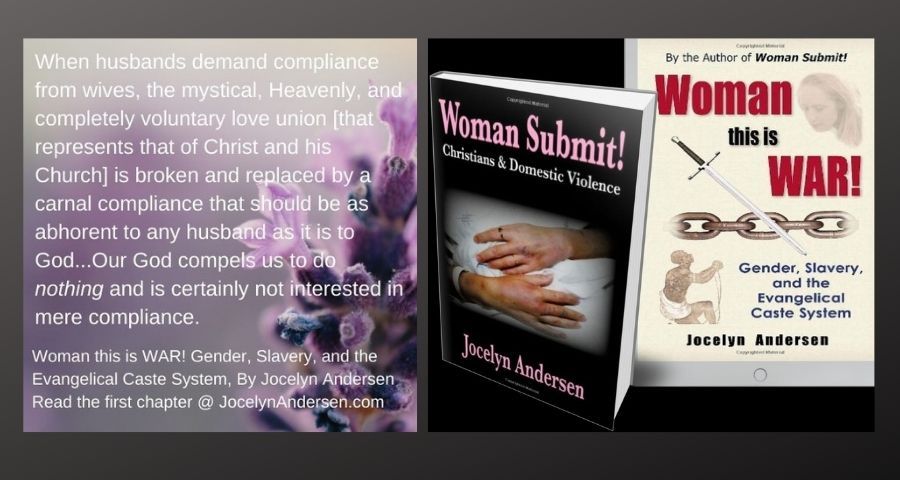Enlightenment can come at the most unexpected times from the most unexpected sources.
Who would have dreamed a verse of scripture speaking of forgiveness, would turn the world of scholarship on its ear by exposing a universal bias that has kept the full meaning of a biblical word from the Christian laity for centuries, and all to maintain a gender-role hierarchy the Bible does not teach.
Who would have dreamed a verse of scripture speaking of forgiveness, would turn the world of scholarship on its ear by exposing a universal bias that has kept the full meaning of a biblical word from the Christian laity for centuries, and all to maintain a gender-role hierarchy the Bible does not teach.
2 Corinthians 2:10-11: 10: To whom you
forgive anything I forgive also for if I forgave anything to whom I forgave it
for your sakes forgave I it in the room(TYN) of Christ 11: Lest over [hypo G5259] [1] [us] Satan should gain advantage for
we are not ignorant of his devices
1] The primary preposition, hypo (G5259), is both untranslated and
mistranslated in this verse (depending on what work one reads). The reason for this is obvious. The context of verse 11,
demands it be translated as “over.” This contradicts religious tradition which
teaches the word always means some form of “beneath/under,” or some other innocuous
translation such as by, of, with…, etc.. Defining this word honestly demands
that centuries-old traditions regarding gender roles be re-considered in light
of even one verse using the word, hypo,
as meaning “over” instead of under, inferior, or beneath. 2 Corinthians 2:11,
is that one verse.
This is an excerpt from the
Hungry Hearts Online Bible Commentary HHBC
In light of 2 Corinthians 2:11, Strong either overlooked one of the meanings of hypo (over), or he did it deliberately.
Historically, virtually all Bible translators and commentators were role-religionists. 2 Corinthians 2:11 only adds to the mountain of evidence attesting to the misogynistic filters through which they worked. Bushnell did well to encourage Christians to learn to read the biblical languages for themselves.
Woman this is WAR! Gender Slavery and
the Evangelical Caste System, examines Bible commentary and translation
practices which have historically been androcentric (male centered) and even
misogynistic (anti-woman).
These have adversely effected
understanding of the scriptures, relations between women and men, the happiness
of men and women, and, in general, has hindered the work of the gospel, by
forbidding women to preach, pastor, or serve as elders or deacons. The book
chronicles the early history of the women's rights movements, as well as the
role of church leadership in aggressively suppressing both women's rights and
the historical record of Christian initiatives within the movements.
Through the complementarian
movement, many of the same arguments used to support the institution of
slavery, are still used today in suppressing the rights of Christian women.
This book documents identical arguments used by Christian leaders against both
movements and is an unparalleled resource for all who desire an in-depth study
of gender equality from a historical and Christian perspective.
This book traces history of
women’s rights, much further than usual, to the very first feminists…who
were Christians—godly women, who brought the issue of women's rights to the
forefront as they struggled to alleviate the suffering of others, and found
they were hindered in doing so for no other reason than the fact of their sex.
This work, provides valuable historical insight into Christian initiatives in
the movements for women’s rights, that are rarely included in Christian
literature.





No comments:
Post a Comment